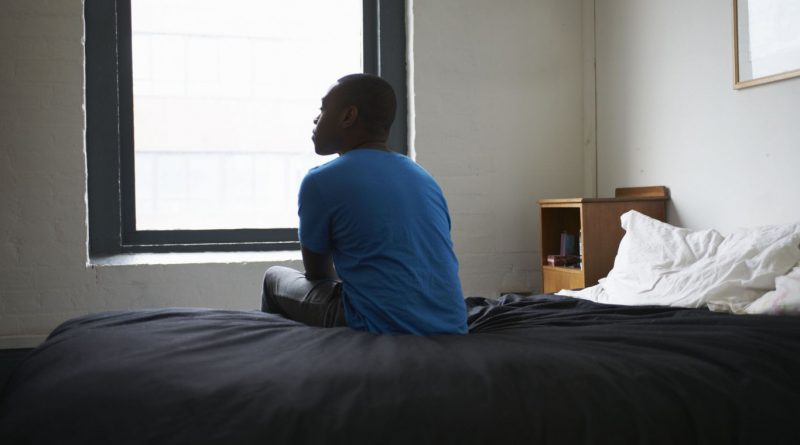Practices To Help Maintain Mental Health During The Coronavirus Lockdown
Since the World Health Organization declared the COVID-19 outbreak a global pandemic, many of us, even those who have not been infected by the virus, will choose to quarantine in our homes for the upcoming weeks. Capsized travel plans, indefinite isolation, panic over scarce re-sources and information overload could be a recipe for unchecked anxiety and feelings of isola-tion. Here are a few pointers that could help you survive spiraling negative thoughts about this uncertain time.
1.) Reframe “I am stuck inside” to “I can finally focus on my home and myself”
As dismal as the world may feel right now, think of the mandated work-from-home policy as an opportunity to refocus your attention from the external to the internal. Doing one productive thing per day can lead to a more positive attitude. Set your sights on long-avoided tasks, reorganize, or create something you’ve always wanted to.
Approaching this time with a mindset of feeling trapped or stuck will only stress you out more. This is your chance to slow down and focus on yourself and what you need to do to make this a productive work exercise.
2.) Stay close to your normal routine
Try and maintain some semblance of structure from the pre-quarantine days. For those individuals with children, sticking to a routine might be easier; however as you work from home, it could be tempting to fall into a more lethargic lifestyle, which could lead to negative thinking.
Wake up and go to bed around the same time, eat meals, shower, adapt your exercise regimen, and get out of your PJ’s.
Do laundry on Sundays as usual. Not only will sticking to your normal routine keep you active and less likely to spiral, it will be easier to readjust to the outside world when it’s time to get back to work.
Another reason is that keeping a routine reduces “decision fatigue,” the overwhelm and exhaustion that can come from too many options. So in the morning, rather than wondering whether to start work or help the kids with their online learning, it’s better to know what you’re going to do—make a schedule that everyone can get on board with, and try to stick with it (as much as is possible—don’t beat yourself up if it doesn’t always work, and it’s sure not to work some days). This will free up some mental bandwidth during this time of uncertainty, which is already straining everyone’s cognitive capacities.
3.) Avoid obsessing over endless Coronavirus coverage
Freeing up your day from work or social obligations gives you plenty of time to obsess, and if you have a tendency to consult Google for every itch and sneeze, you may be over-researching the pandemic as well. Choosing only certain credible websites (who.int or cdc.gov is a good start) for a limited amount of time each day (perhaps two chunks of 30 minutes each) will be in your best interest during this time.
4.) A chaotic home can lead to a chaotic mind
With all the uncertainly happening outside your home, keep the inside organized, predictable and clean. Setting up mental zones for daily activities can be helpful to organize your day. For example, try not to eat in bed or work on the sofa- just as before, eat at the kitchen table and work at your desk.
Loosening these boundaries just muddles your routine and can make the day feel very long. Additionally, a cluttered home can cause you to become uneasy and claustrophobic of your environment- so keep it tidy.
5.) Start a new quarantine ritual
With this newfound time, why not do something special during these quarantined days? For ex-ample, perhaps you can start a daily journal to jot down thoughts and feelings to reflect on later. Or take a walk every day at 4pm, connect with your sister over FaceTime every morning, or start a watercolor painting which you can add to everyday. Having something special during this time will help you look forward to each new day.
6.) Use telehealth as an option to talk to a professional if your anxiety becomes unmanageable
Many licensed psychologists are offering telehealth options over HIPAA-compliant video chat platforms. Remember to reach out for help if your anxiety is reaching proportions that is unmanageable without professional help. ( this may not be available in South Africa but find a friend that will exert positive influence on your thoughts and activities )
Letting go of illusions of control and finding peace in the fact that you are doing your part to “flatten the curve” will certainly build mental strength to combat the stressful situation the whole globe is experiencing.
7) Meditate, or just breathe
Meditation has lots of research behind it, as most people by now know—it’s been shown to reduce symptoms of depression and anxiety, and even increase the volume of certain areas of the brain. Mindfulness-based stress reduction (MBSR), developed by Jon Kabat-Zinnat UMass, has been shown, through numerous studies, to be effective—and while it generally involves an eight-week course, a number of organizations offer this online.
But if meditation isn’t for you, just breathing slowly might be. Controlled breathing has been used for millennia to calm the mind—and a study a few years ago showed the mechanism that might explain it. The researchers found that a tiny subset of neurons in the area of the brain known to control various types of breathing also seemed to house a group of neurons that controlled the animals’ level of arousal. Knocking this area out made mice uncharacteristically calm—and the team believe that slow breathing might also tap into this area of the brain and have the same effect.
The researchers also point out that slow breathing is used “clinically to suppress excessive arousal and stress such as certain types of panic attacks,” which is nothing to sneeze at. So trying some controlled breath work (there are good resources for this online) may be an especially healthy idea these days.
8) Be of service, from a distance
Being of service is one of the best things we can do for society—and on a more selfish note, for ourselves. Studies have repeatedly found that serving others, even via small acts of kindness, has strong and immediate mental health benefits. And feeling a sense of purpose has also been shown to help people recover from negative events and build resilience. For people who are lucky enough to be healthy right now and not caring for a loved one who’s sick, finding ways to help others in this kind of crisis is probably very good for your own well-being.
Here’s a breakdown from the Times on organizations that are helping those affected by coronavirus on a larger scale. And on a more local note, organizing efforts to help neighbors in need of food or supplies, buying gift certificates to local business, ordering takeout from neighborhood restaurants, and helping fundraise locally can help the financial fallout that’s happening all over the country. (More ideas are here.)
9) Practice gratitude
This is not the easiest thing to do in these times, particularly if you’ve felt the more brutal effects of the pandemic, like job or business loss, or illness. But practicing gratitude for the things we do have has been shown again and again to be hugely beneficial to mental health. For instance, in one of the first key studies on the subject, the researchers found that writing down five things one was grateful just once a week was significantly linked to increased well-being. Other studies since have borne this out; and of course gratitude is a central tenet of most religions and philosophies around the world.
So even though it might be a challenge right now, write down some of the things you’re grateful for; or if you have little kids and it’s easier, try talking about and listing aloud things that make you happy and that you’re thankful for.
10) Let yourself off the hook
The might be the most important thing to keep in mind—don’t beat yourself up when things are not going perfectly in your household. On top of everything else, being upset with yourself is totally counterproductive. If the kids watch too much Netflix or play too many hours of video games, it’s not the end of the world. Things are going to be hairy for a while, and if you can’t stick to your schedule or can’t fit in your at-home workout every day, it’s really not such a big deal in the long run. It’s much more valuable to everyone to cut yourself some slack, use the time to reflect on the important things, and try to keep a sense of “we’re all in this together” at the forefront.
[Thanks to MasterDrive for these Suggestions]
Health Precautions and Safe Travel https://t.co/k9s9od79qq #ArriveAlive #Health #TravelSafety pic.twitter.com/HGig4F5JOJ
— Arrive Alive (@_ArriveAlive) March 26, 2020
Also view:




